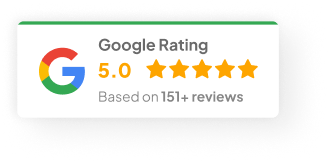30 Sep 25
Why ERP Integration Matters for B2B Stores
Running a B2B store isn’t for the faint of heart. Buyers want fast responses, no errors, and full visibility into what’s going on with their orders. They don’t want excuses. And honestly, they’re right—mistakes cost everyone time and money.
That’s where ERP (Enterprise Resource Planning) systems come in. When your store and your ERP talk to each other, things just work smoother. When they don’t, you’re left chasing spreadsheets and fielding angry phone calls. Let’s break down why this connection matters so much.
1) Smoother Operations, Lower Costs
Manual data entry is a killer. Every extra touchpoint—whether it’s retyping orders, reconciling invoices, or updating inventory—slows things down and opens the door to errors.
- Businesses with ERP and eCommerce integration cut operational costs by 30% on average
- Data entry errors alone can drop by 25% once automation takes over
- Fewer delays, fewer corrections, less wasted effort
This is the kind of efficiency that lets a business grow without needing to double its staff every time order volume jumps.
2) Inventory You Can Trust
Ask any B2B manager what keeps them up at night—stockouts and overstock usually make the list. With hundreds (sometimes thousands) of SKUs spread across warehouses, even small inventory gaps can cause big headaches.
Real-time ERP integration solves that. Some companies report inventory cost reductions up to 40% just from having better visibility. And it’s not just about knowing what’s on the shelf today. It’s about forecasting properly, buying smarter, and avoiding the kind of backorder mess that makes customers shop elsewhere.
3) Customers Notice the Difference
B2B buyers aren’t guessing anymore. They want reliable pricing, clear order tracking, and the ability to handle things themselves online. If the storefront says one thing but the rep quotes another, trust breaks instantly.
ERP integration keeps everyone on the same page—website, reps, and customers. And that makes for happier, repeat buyers.
4) Data That Actually Helps You Decide
When systems aren’t connected, data gets scattered. Finance says one thing, sales reports another, and inventory has its own numbers. Making decisions in that mess is like driving with a cracked windshield—you can do it, but not safely.
ERP ties it all together. That’s why about 50% of companies are using ERP data for forecasting and predictive analytics. The better the data, the sharper the decisions—whether it’s pricing, assortment planning, or segmenting customers.
5) Growth Without the Growing Pains
Scaling a B2B store is tough. More SKUs, more orders, new sales channels, multiple warehouses—it gets messy quickly. Disconnected systems simply don’t hold up.
That’s why 65% of B2B businesses have made ERP-eCommerce integration a top strategic investment. It’s what lets them sell across regions, handle multiple currencies, or ride out sudden demand spikes without collapsing under the workload.
6) Getting Pricing and Compliance Right
Pricing in B2B is rarely one-size-fits-all. Tiered contracts, negotiated deals, special terms—they all need to be reflected correctly. If the ERP says one thing and the invoice shows another, disputes are inevitable.
Integration keeps pricing consistent and invoices accurate. It also makes compliance—taxes, audits, cross-border rules—much easier to manage. For industries with strict oversight, that consistency is non-negotiable.
7) Staying Ahead of the Pack
Digital commerce in B2B is accelerating. Buyers expect self-service and transparency like they get in B2C. The problem? 77% of B2B companies admit digital transformation is critical, but 71% are still stuck with manual processes.
That gap leaves room for competitors. Companies using unified ERP and eCommerce solutions can experience greater agility, simpler upkeep, and more streamlined operations than those still running siloed systems.
Being able to add a new sales channel overnight or adjust pricing strategies on the fly can be the difference between winning business and losing it.
What Happens If You Skip It
Here’s what usually happens when businesses delay ERP integration:
- Orders get entered wrong and invoices disputed
- Shipments run late because workflows aren’t automated
- Customers see “in stock” items that aren’t actually available
- Support lines get flooded with “where’s my order” calls
- Lost sales—up to 13%, according to Digital Commerce 360
- Scaling becomes a nightmare, with compliance risks piling on
It’s not a list anyone wants to deal with.
Weighing the Effort vs. Reward
No sugarcoating here: ERP integration projects can be complex. Costs, data migration, training, system compatibility—they all take work. Done poorly, integration can add friction instead of removing it.
But when done right, the return shows up fast. Lower overhead, cleaner processes, happier customers, and a much stronger foundation for growth.
Wrapping Up
ERP integration isn’t just a “tech upgrade.” It’s the backbone of modern B2B commerce. From inventory accuracy and pricing transparency to compliance and scalability, the benefits touch every part of the business.
The stats make it clear: companies that invest in integration see higher sales, lower costs, and stronger customer loyalty. For any B2B store looking to stay competitive, ERP integration isn’t optional anymore. It’s the baseline.


